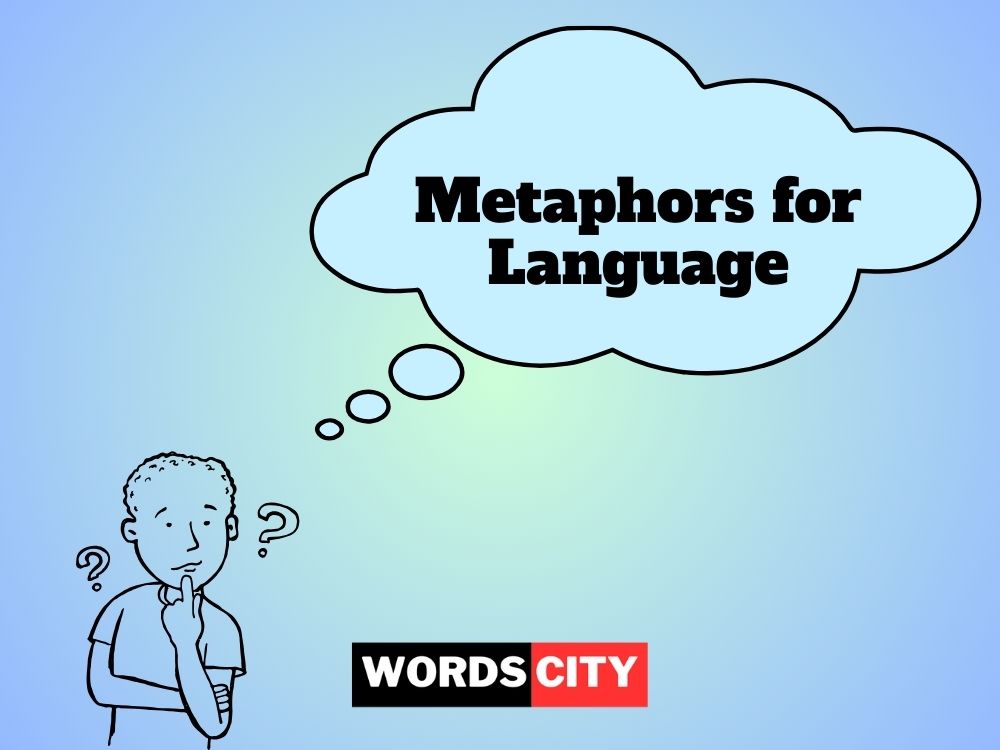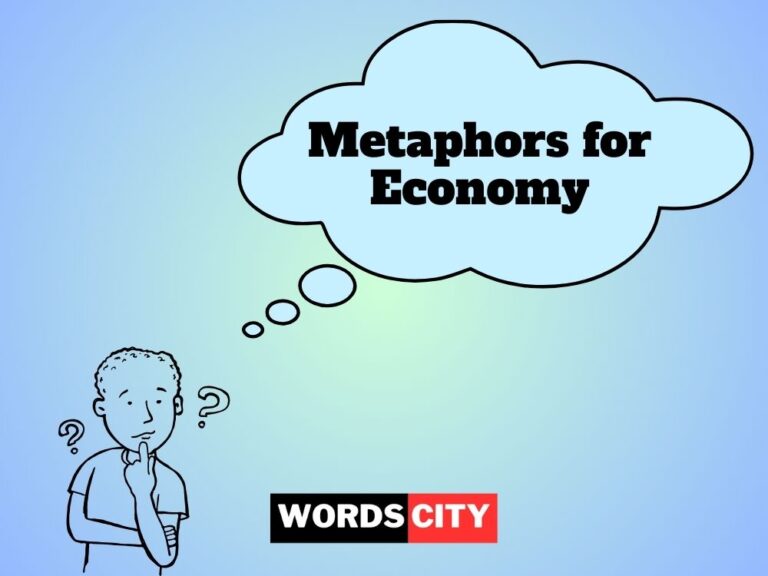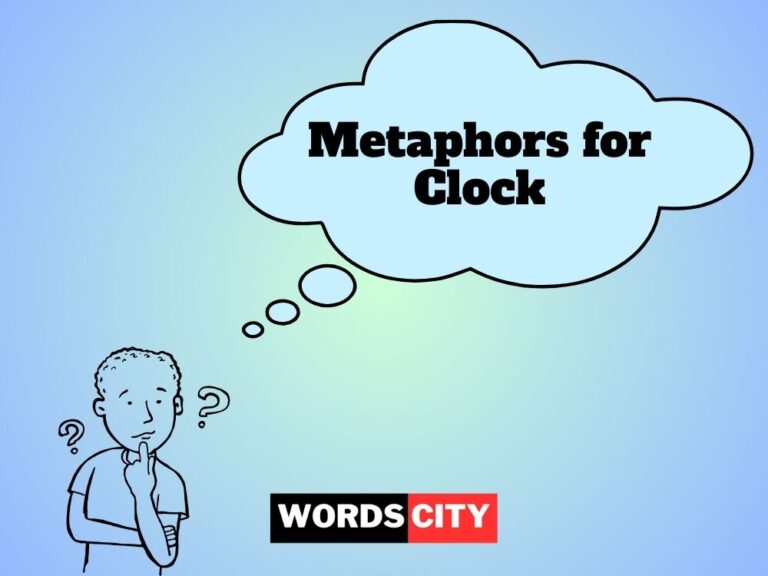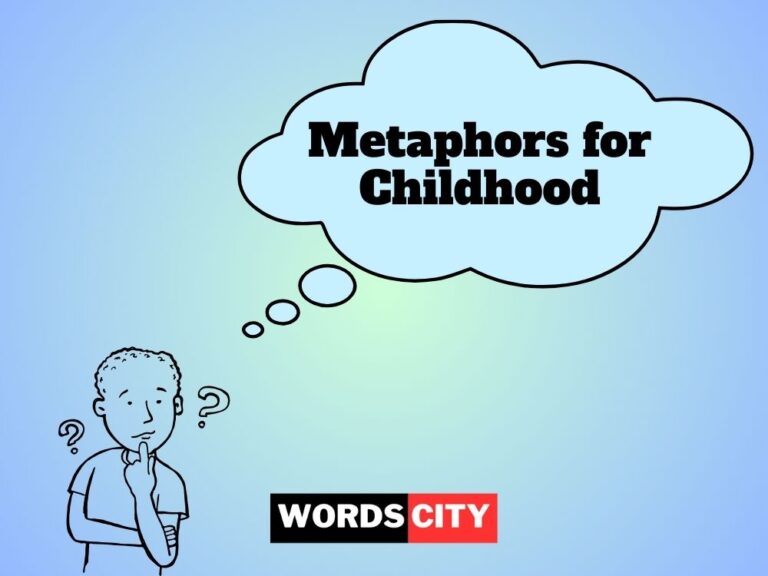Language is more than words—it’s how we connect, how we think, how we feel. It’s the bridge between people, ideas, and cultures. But sometimes, understanding language and its impact can be tricky.
That’s where metaphors come in. Metaphors help paint a vivid picture of what language is, how it works, and how it shapes our lives. By seeing language through metaphors, we can better grasp its power, beauty, and importance in everyday moments—from a simple greeting to the deepest conversations.
Metaphors for Language
1. Language is a Bridge
Meaning: It connects people, ideas, or cultures across gaps.
In a Sentence: Learning Spanish became a bridge between Ana and her grandmother, allowing them to share stories once lost in translation.
Other Ways to Say: Connection, Pathway
2. Language is a Mirror
Meaning: It reflects who we are and how we see the world.
In a Sentence: The way he spoke about the forest revealed his deep love for nature—his words were a mirror of his heart.
Other Ways to Say: Reflection, Self-expression
3. Language is a Key
Meaning: It unlocks understanding or opens doors to communication.
In a Sentence: Speaking just a few words of Italian was the key to making friends in Rome.
Other Ways to Say: Unlocking potential, Opening up
4. Language is a Weapon
Meaning: It can be used to harm or defend.
In a Sentence: Her sarcasm was sharp—language became a weapon that cut through any fake smiles in the room.
Other Ways to Say: Verbal sword, Verbal power
5. Language is a Thread
Meaning: It weaves people, cultures, or stories together.
In a Sentence: The old tales passed down in their village were a thread that tied generations together.
Other Ways to Say: Weaving stories, Cultural link
6. Language is a Song
Meaning: It has rhythm, tone, and beauty.
In a Sentence: His voice danced through the poem like a song, full of feeling and melody.
Other Ways to Say: Melody of speech, Rhythmic expression
7. Language is a Map
Meaning: It helps us navigate ideas or emotions.
In a Sentence: In therapy, words acted like a map that helped her find her way through pain.
Other Ways to Say: Guide, Compass
8. Language is a Fire
Meaning: It can warm and inspire or burn and destroy.
In a Sentence: His speech ignited a fire in the crowd, sparking action and unity.
Other Ways to Say: Spark, Flame of speech
9. Language is a Dance
Meaning: It’s fluid, expressive, and involves interaction.
In a Sentence: Their conversation was a dance, with each sentence flowing smoothly into the next.
Other Ways to Say: Dialogue rhythm, Verbal choreography
10. Language is a Tool
Meaning: It’s something we use to get things done or solve problems.
In a Sentence: In the courtroom, language was her most powerful tool to win the case.
Other Ways to Say: Instrument, Verbal skillset
11. Language is a Window
Meaning: It lets us see into someone’s thoughts or emotions.
In a Sentence: His journal entries were a window into the struggles he never said out loud.
Other Ways to Say: Insight, Glimpse
12. Language is a Puzzle
Meaning: It requires understanding, fitting things together, and making sense.
In a Sentence: Learning English idioms was like solving a puzzle—confusing at first, but satisfying once it clicked.
Other Ways to Say: Brain teaser, Riddle
13. Language is a Canvas
Meaning: It’s a medium for creative expression.
In a Sentence: Her poems painted emotions on a canvas of words, rich with meaning and color.
Other Ways to Say: Palette, Literary artwork
14. Language is a Thread of Thought
Meaning: It expresses or follows a line of reasoning.
In a Sentence: His speech followed a thread of thought that connected every point with purpose.
Other Ways to Say: Train of thought, Verbal line
15. Language is a Web
Meaning: It connects many ideas or people in a complex way.
In a Sentence: The internet has spun a web of language where cultures meet, merge, and evolve every day.
Other Ways to Say: Network, Net of words
16. Language is a Lens
Meaning: It shapes how we see the world.
In a Sentence: Through the lens of his native language, colors had deeper meaning and emotions were more vivid.
Other Ways to Say: Filter, Perspective
17. Language is a River
Meaning: It flows continuously and evolves over time.
In a Sentence: English is like a river, carrying old words downstream while new ones flow in with every generation.
Other Ways to Say: Stream of words, Flow of speech
18. Language is a Garden
Meaning: It grows and needs nurturing to flourish.
In a Sentence: With daily reading and writing, her vocabulary bloomed like a well-tended garden.
Other Ways to Say: Verbal landscape, Linguistic growth
19. Language is a Mirror Maze
Meaning: It can reflect, distort, or reveal depending on how it’s used.
In a Sentence: Political language often feels like a mirror maze—you’re never sure what’s real or just a reflection.
Other Ways to Say: Trick of speech, Verbal illusion
20. Language is a Toolbox
Meaning: It contains many tools for different communication needs.
In a Sentence: A good writer reaches into their toolbox to find just the right word for every situation.
Other Ways to Say: Word kit, Speech set
21. Language is a Net
Meaning: It captures and holds meaning or emotion.
In a Sentence: The poet cast her net of language wide, catching everything from joy to sorrow in a single stanza.
Other Ways to Say: Capture tool, Meaning net
22. Language is a Flame
Meaning: It can be both enlightening and dangerous.
In a Sentence: The heated debate showed how language can become a flame—bright but quick to burn.
Other Ways to Say: Blaze of speech, Heat of words
23. Language is a Lifeline
Meaning: It provides vital connection and support.
In a Sentence: After moving abroad, phone calls in her native tongue became a lifeline to home.
Other Ways to Say: Anchor, Link to identity
24. Language is a Path
Meaning: It guides us on a journey of understanding.
In a Sentence: Every story she read was a path that took her deeper into new worlds and new ways of thinking.
Other Ways to Say: Journey, Road of words
25. Language is a Paintbrush
Meaning: It adds color and detail to ideas and emotions.
In a Sentence: The teacher used vivid metaphors like a paintbrush, turning dry lessons into colorful stories.
Other Ways to Say: Word painter, Verbal artist
26. Language is a Mask
Meaning: It can hide or disguise true meaning or identity.
In a Sentence: Behind his polite tone, language acted as a mask, concealing the frustration in his voice.
Other Ways to Say: Disguise, Verbal curtain
27. Language is a Lighthouse
Meaning: It guides and provides clarity in times of confusion.
In a Sentence: Her grandmother’s advice, spoken in soft Bengali, was a lighthouse during the stormiest times of her life.
Other Ways to Say: Beacon, Verbal guidepost
28. Language is a Chisel
Meaning: It shapes thoughts, arguments, or ideas into form.
In a Sentence: With every draft, he used language like a chisel, carving out his thesis into something sharp and clear.
Other Ways to Say: Shaping tool, Thought sculptor
29. Language is a Firework
Meaning: It can burst with emotion and grab attention instantly.
In a Sentence: Her slam poetry exploded like fireworks, lighting up the room with raw emotion.
Other Ways to Say: Spark show, Word explosion
30. Language is a Shell
Meaning: It can protect or hold meaning inside.
In a Sentence: In letters, her language became a shell—containing secrets, hopes, and pieces of her soul.
Other Ways to Say: Container, Word casing
31. Language is a Magnet
Meaning: It draws people, ideas, or emotions toward it.
In a Sentence: The storyteller’s voice was a magnet, pulling everyone in with every sentence.
Other Ways to Say: Pull, Attractor of attention
32. Language is a Recipe
Meaning: It’s made of ingredients that, when combined right, create something meaningful.
In a Sentence: Her speech had all the right ingredients—humor, sincerity, and clarity—language used like a perfect recipe.
Other Ways to Say: Formula, Blend
33. Language is a Game
Meaning: It follows rules but also allows for creativity and play.
In a Sentence: Writing puns is like playing a game with words—you bend the rules just enough to win a laugh.
Other Ways to Say: Wordplay, Lexical puzzle
34. Language is a Quilt
Meaning: It brings together different pieces to form a unified whole.
In a Sentence: Her essay stitched together facts and emotions like a quilt, warm and thoughtful.
Other Ways to Say: Patchwork of thought, Verbal fabric
35. Language is a Mirrorball
Meaning: It reflects many angles and lights up conversations.
In a Sentence: Her stories were like a mirrorball—every perspective bouncing off in new and dazzling ways.
Other Ways to Say: Faceted light, Multiview reflection
36. Language is a Tapestry
Meaning: It combines stories, cultures, and voices into one intricate whole.
In a Sentence: Their multilingual home was a tapestry of expressions—woven from Bengali, English, and Urdu threads.
Other Ways to Say: Fabric of speech, Interwoven voices
37. Language is a Mirrorball
Meaning: It reflects many views and meanings from different angles.
In a Sentence: His essay spun like a mirrorball, catching light and truth from every cultural experience he’d ever lived.
Other Ways to Say: Disco globe of ideas, Multifaceted reflector
38. Language is a Compass
Meaning: It helps us find direction in thought or communication.
In a Sentence: Her journal became a compass, pointing her toward clarity in times of emotional fog.
Other Ways to Say: Inner guide, Word navigator
39. Language is a Storm
Meaning: It can be loud, chaotic, and powerful.
In a Sentence: Their argument escalated quickly—language turned into a storm, filled with thunderous accusations.
Other Ways to Say: Verbal tornado, Communication clash
40. Language is a Curtain
Meaning: It can reveal or hide, depending on how it’s used.
In a Sentence: The politician used polite phrases like a curtain, hiding the harsher truths behind smooth language.
Other Ways to Say: Veil, Screen of speech
41. Language is a Maze
Meaning: It can be complex and confusing to navigate.
In a Sentence: Legal documents are often a maze of language, where every turn leads to more questions.
Other Ways to Say: Labyrinth of words, Confusing route
42. Language is a Torch
Meaning: It lights the way toward understanding or truth.
In a Sentence: The teacher’s clear words were a torch in the darkness of confusion.
Other Ways to Say: Light of learning, Truth-bringer
43. Language is a Magnet
Meaning: It attracts attention, emotion, or thought.
In a Sentence: Her speech about injustice was a magnet—pulling people’s hearts and minds toward action.
Other Ways to Say: Pulling force, Emotional draw
44. Language is a Ladder
Meaning: It helps us climb to greater knowledge or success.
In a Sentence: Every book she read added a rung to her ladder of understanding.
Other Ways to Say: Step-by-step growth, Learning scaffold
45. Language is a Web of Meaning
Meaning: It connects words with layered, intricate ideas.
In a Sentence: Poetry spins a web of meaning—each word tied to others with feeling, form, and rhythm.
Other Ways to Say: Net of nuance, Intricate meaning
46. Language is a Wave
Meaning: It carries messages through time and space.
In a Sentence: From ancient cave drawings to texts, language has always ridden the wave of human connection.
Other Ways to Say: Ripple, Vibration of speech
47. Language is a Vessel
Meaning: It holds and transports meaning, memory, or identity.
In a Sentence: The lullabies of her childhood became vessels of love and culture, sailing with her into adulthood.
Other Ways to Say: Carrier, Emotional container
48. Language is a Tree
Meaning: It has roots, branches, and evolves over time.
In a Sentence: The Latin roots of English are like the base of a tree—everything grows outward from them.
Other Ways to Say: Growth structure, Living language
49. Language is a Mirror of the Mind
Meaning: It reflects thoughts, intentions, and inner beliefs.
In a Sentence: His quiet tone and careful words mirrored a mind full of empathy and wisdom.
Other Ways to Say: Thought reflection, Mindprint
50. Language is an Echo
Meaning: It carries and repeats meaning across time or space.
In a Sentence: Her grandfather’s old sayings echoed through her speech, long after he passed.
Other Ways to Say: Reverberation, Lingering voice
Practical Exercise
Fill in the Blanks:
Complete the sentences using the correct metaphor for curiosity.
- His curiosity was like a ___, drawing him toward new discoveries.
- Curiosity is a ___, always leading us down new paths of understanding.
- The mystery unfolded like a ___, revealing new clues along the way.
- Her curiosity was a ___, lighting up her imagination with new possibilities.
- Curiosity is a ___, pulling us deeper into unknown territories.
- The question sparked a ___ of ideas in her mind.
- Curiosity is a ___, its energy never running dry.
- His curiosity became a ___, always growing with every new piece of knowledge.
- Curiosity is a ___, helping us uncover hidden treasures of wisdom.
- Their adventure was a ___ of curiosity, filled with discoveries and surprises.
Answers:
- Magnet
- Bridge
- Puzzle
- Firefly
- Whirlpool
- Garden
- River
- Snowball
- Treasure map
- Hunt
Conclusion
Language is more than just a tool—it’s a living, breathing thing. It can be soft like a song, sharp like a chisel, or wild like a storm. These 50 metaphors show us how language weaves through our lives, shaping how we speak, connect, and understand each other.
Whether it’s a bridge to someone new or a mirror of who we are, language is what makes us human. And when we see it through the lens of metaphor, it becomes even more magical.
So go ahead—listen closer, speak thoughtfully, and celebrate the many forms that language takes. Because every word you say is part of a bigger, beautiful picture.




